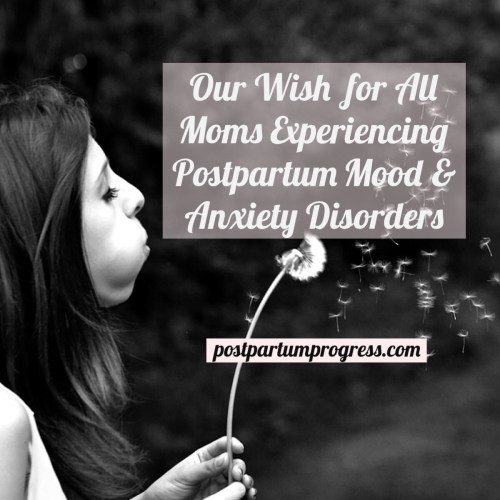
Hayden Panettiere spoke yesterday about the amazing support she received when she announced she was entering treatment for postpartum depression.
“The more open I was, the more acceptance I got from people,” she said. “I got so much support and so much love. I was floored. I feel much more exposed, yes, but in a great way.”
She’s been open, honest, and vocal about her experience, and we continue to love the way she’s using her experience to educate and destigmatize postpartum mood and anxiety disorders. The more the general public hears about postpartum depression, the more it becomes less scary, less “other,” and the more likely moms might be to reach out for help when they’re suffering.
But the truth is this: Even Hayden was shocked that she received support.
Moms remain silent, hiding their symptoms from even those they’re closest to, out of fear of being judged, fear of being told they’re not a good mother, fear of admitting what they perceive to be some kind of inherent female flaw. Whether it’s their first or their fifth child, moms experiencing a postpartum mood and anxiety disorder fear they’re just bad moms. Not good enough. Broken.
Unfortunately, the stigma of maternal mental health isn’t imaginary. These moms don’t fear the reactions of others without reason. People, sometimes even with good intentions, spout of all kinds of things which aren’t helpful at best and, at their worst, can destroy a mom’s sense of self-worth.
“I don’t know why you aren’t feeling bonded with your baby; I loved my daughter the moment I set eyes on her.” “I’ve never felt resentment for my child. What’s wrong with you?” “You’re just not trying hard enough.” “Pray harder.” “If you hadn’t quit breastfeeding, you’d be feeling better.” “If you’d quit breastfeeding, you’d feel better.” “Exercise more.” “Taking time for yourself is selfish.” “This is supposed to be the happiest time of your life.”
Moms hear these things. They internalize them. They hear the unspoken point of the words: You’re doing motherhood wrong. Something is wrong with you.
Mothers experiencing these mental illnesses need to hear that they are normal. That 1 in 7 moms experiences a postpartum mood and anxiety disorder. That postpartum depression and its cousins are temporary and treatable. That one day motherhood won’t feel like this. That they are good moms.
Good Moms.
Moms with postpartum depression are good moms. Moms experiencing postpartum anxiety are good moms. And postpartum OCD. And postpartum psychosis. And postpartum bipolar. And postpartum PTSD. And moms experiencing intrusive thoughts or suicidal ideation or insomnia or rage or crippling fear or all of the above. Moms seeking care for mental illness are good moms. Moms struggling to reach out for help are good moms. Moms who don’t know what’s happening inside their head and body are still good moms.
Our wish is that all moms would not just realize that postpartum mental illness doesn’t define their motherhood but that all moms would feel supported in their battle against postpartum depression and other postpartum mood and anxiety disorders. That when a mom starts to feel like something might not be right, she can reach out to those closest to her or seek care from a doctor, nurse, therapist, or do research online without fear of judgment or some form of punishment. That moms won’t feel silenced by social, cultural, or religious beliefs in their own communities. That moms can share their stories, online and off, to receive support without nasty comments or dismissive tones. That as mothers beat postpartum depression, they can reply in kind to those just starting their own battles, offering support and hope.
Peer support isn’t just part of our mission because we think it’s trendy. Peer support is our model of support because we know that receiving support for postpartum mood and anxiety disorders means the world to moms. It works. It changes the lives of moms and helps babies and families. Supporting moms where they are with what they need, no matter their diagnosis, should be a goal for all.



Hi there, Jenna,
I emailed you over the weekend about a time-sensitive issue, but I didn’t hear back. Perhaps you didn’t get my email -I sent it to editor@postpartumprogress.org about my Huffington Post article.
If you need me to re-send it, please email me at dyane@baymoon.co.
Thanks, & take care,
Dyane